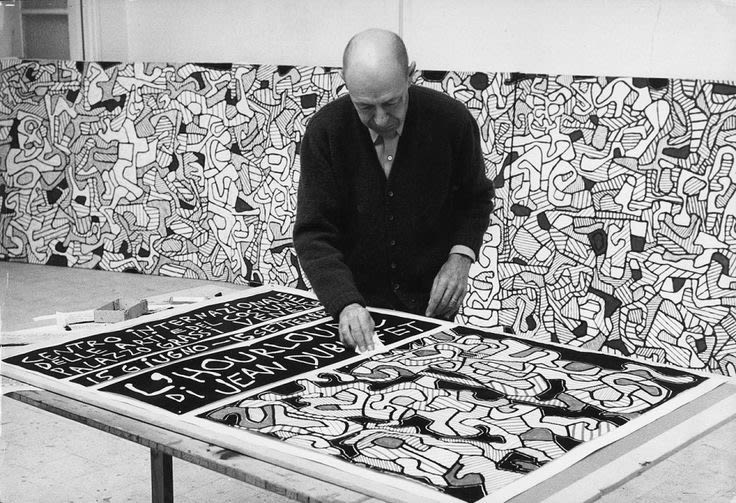Jean Dubuffet (1901–1985) was a pioneering French artist and the founder of the Art Brut movement, which championed the work of outsiders and those uninfluenced by traditional artistic norms. Born in Le Havre, France, Dubuffet initially trained in art but abandoned it for several years, working instead in his family’s wine business. He returned to painting in the 1940s, developing a unique style that rejected conventional aesthetics in favor of raw, unrefined expression.
Dubuffet’s art was characterized by its textured surfaces, unconventional materials, and a deliberate crudeness that challenged established notions of beauty. He often used materials like tar, sand, and dirt in his paintings, creating works that appeared primitive and childlike yet carried deep emotional and philosophical weight. His approach was a direct critique of the elitism in the art world, advocating for a more democratic view of creativity.
In 1945, Dubuffet coined the term "Art Brut" (or "raw art") to describe art made by individuals outside the mainstream, such as psychiatric patients, prisoners, and self-taught artists. He collected these works and promoted them as a source of pure, unfiltered creativity, free from cultural and intellectual constraints. This concept had a profound impact on the post-war art scene and inspired many contemporary artists.
Dubuffet's significance lies in his radical rethinking of what constitutes art and who gets to be an artist. His work and ideas opened up new avenues for creative expression, making him a central figure in 20th-century modern art and a lasting influence on generations of artists who followed.
